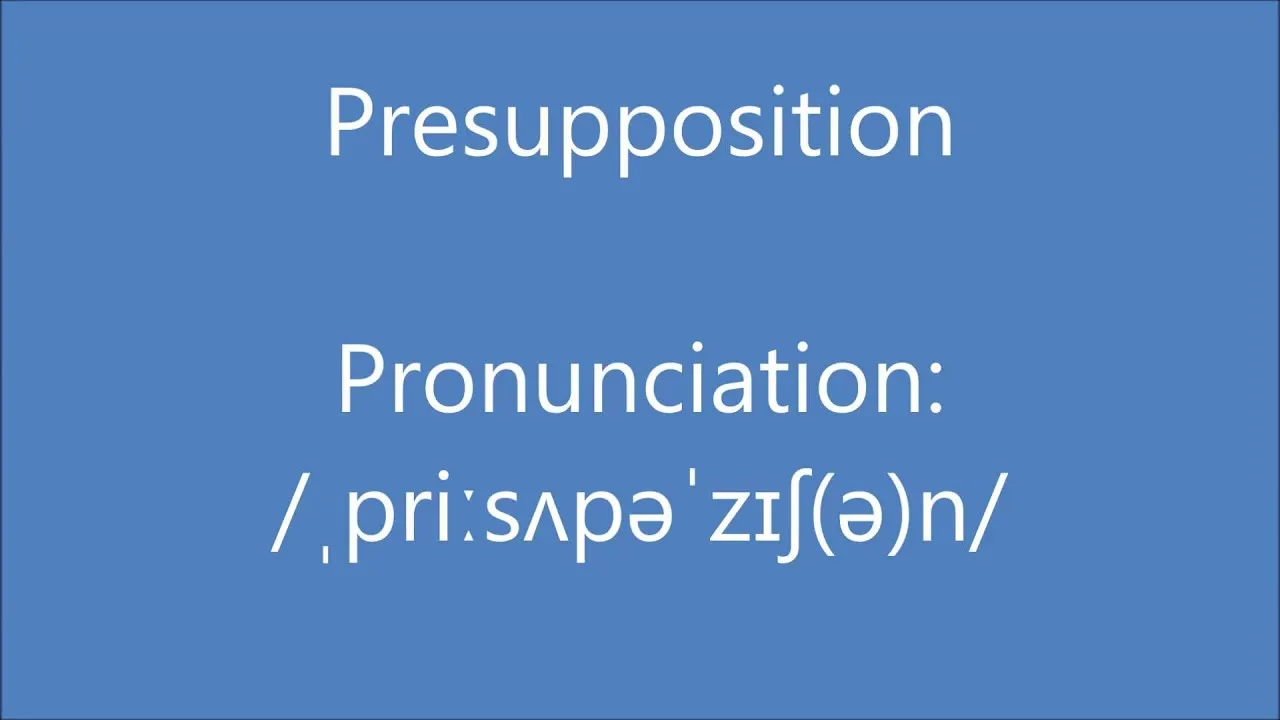Table of Contents
No, not your suppositories, your presuppositions. We all have them whether we realise it or not. A presupposition is something that we accept as true, without necessarily having proof. A case in point is presuppositional apologetics. There are two theological presuppositions: “In the beginning God…” or “In the beginning, not God …” Neither can be definitively proved, but one of those two starting points governs your life, your beliefs, your actions, your decisions, your character.
This post is not intended as a theological treatise but the comparison is probably valid, so stick with me for a bit as we look at an example dialogue.
Allen: I am an atheist and evolutionist. Prove to me there is a God.
Paul: I do not think I can do that because of your presuppositions.
Allen: Why not?
Paul: Because your presuppositions will not allow you to examine, without bias, the evidence that I present to you for God’s existence.
Allen: That is because there is no evidence for God’s existence.
Paul: See! There you go. You just confirmed what I was stating.
Allen: How so?
Paul: Your presupposition is that there is no God; therefore, no matter what I might present to you to show His existence, you must interpret it in a manner consistent with your presupposition: namely, that there is no God. If I were to have a video tape of God coming down from heaven, you’d say it was a special effect. If I had a thousand eye-witnesses saying they saw Him, you’d say it was mass-hysteria. If I had Old Testament prophecies fulfilled in the New Testament, you’d say they were forged, dated incorrectly, or not real prophecies. So, I cannot prove anything to you since your presupposition won’t allow it. It is limited.
Allen: It is not limited.
Paul: Yes, it is. Your presupposition cannot allow you to rightly determine God’s existence from evidence– providing that there were factual proofs of His existence. Don’t you see? If I DID have incontrovertible proof, your presupposition would force you to interpret the facts consistently with your presupposition; and you would not be able to see the proof.
Allen: I see your point, but I am open to being persuaded if you can.
Paul: Then, I must ask you, what kind of evidence would you accept that would prove God’s existence? I must see what your presuppositions are and work either with them or against them.
(Thanks to CARM for the dialogue)
So where is this little side-track taking us?
Let’s examine another presupposition.
The role of the IPCC is to assess on a comprehensive, objective, open and transparent basis the scientific, technical and socio-economic information relevant to understanding the scientific basis of risk of human-induced climate change, its potential impacts and options for adaptation and mitigation. IPCC reports should be neutral with respect to policy, although they may need to deal objectively with scientific, technical and socio-economic factors relevant to the application of particular policies.
IPCC Founding Principles 1998
The IPCC was set up with the presupposition that climate change is human-induced, otherwise known as man-made, or anthropogenic. The quote above is the IPCC’s defined role for the principles governing its work.
Let’s go back to the dialogue above:
Allen: I am an IPCC report writer (or a Green, or Simon Bridges). Prove to me that climate change is not man-made.
Paul: I do not think I can do that because of your presuppositions.
Allen: Why not?
Paul: Because your presuppositions will not allow you to examine, without bias, the evidence that I present to you of other factors possibly causing global warming or cooling.
Allen: That is because there is no evidence for anything other than the effect of CO2.
Paul: See! There you go. You just confirmed what I was stating.
Allen: How so?
Paul: Your presupposition is that CO2 causes climate change; therefore, no matter what I might present to you to show how the sun might be a factor, you must interpret it in a manner consistent with your presupposition: namely, that CO2 is the cause, the models say so (and so on). So, I cannot prove anything to you since your presupposition won’t allow it. It is limited.
Allen: It is not limited.
Paul: Yes, it is. Your presupposition cannot allow you to rightly determine the cause from evidence. Don’t you see? If I DID have incontrovertible proof, your presupposition would force you to interpret the facts consistently with your presupposition; and you would not be able to see the proof.
If the IPCC man-made climate crisis believers finally did come up with one single example of verifiable physical evidence that the increasing concentration of carbon dioxide in our planet’s atmosphere is causing a climate crisis, would our presuppositions allow us to accept that evidence?









